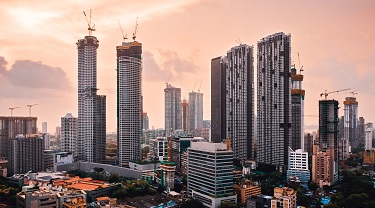
Exporting to India: Top 12 etiquette tips
Author details
Ruzan Desai
Regional manager, India
India is a vast country in size, culture, religion and market dynamics and is one of the fastest-growing economies in the world. With a middle class expected to reach 386 million by 2030, India is poised to become a global economic powerhouse.
The business relationship between Canada and India is strong, with trade reaching $13.7 billion in 2022. As our 10th-largest trading partner, India is also a strategic hub to the Indo-Pacific.
Export Development Canada (EDC) is increasing its investment in the Indo-Pacific and India, to help Canadian companies take advantage of the opportunities of doing business there. We currently have representations in Delhi and Mumbai. To discover more insights about doing business in India, click here.
As EDC’s regional manager in India, I recommend that Canadian exporters do their homework when conducting business in this country. It requires a “Three P” approach—presence, price and perseverance—and a clear understanding of the business culture.
Here’s a guide to some of the essential etiquette tips to help you navigate this diverse country.
12 etiquette tips for doing business in India
1. Be present: It’s important to be physically present in the market, something that builds confidence when you’re selling into India. This signals to your customers that your product or service will be easily serviceable in their country—and in their time zone.
2. Price is key: India is one of the most attractive markets to corporations across the world and, for that reason, being price competitive is essential in this country.
3. Be persistent: India is a crowded and competitive country. In almost all aspects of life, Indians have competed for people’s attention to survive and in business, it’s no different. While business can seem slow and difficult at times, be persistent and play the long game. More often than not, it guarantees success.
You should also check out
Read this Export Development Canada guide on doing business in India
4. The language of global business: While English is the main language for global business, learning a few words of the local language can help make a good impression.
5. Make small talk: Show interest in things that aren’t business-related such as commenting positively about things you saw on the way to the meeting, or about the local food you’ve eaten. Always remember that elders and senior leaders should be treated with utmost respect.
6. Wait to warm up: Indian culture tends to be a bit conservative, although business protocol usually consists of a handshake or using the term namaste (with your hands pressed together) as a mark of welcome and respect.
7. Connect with cards: Indians are conscious of protocol. Be sure to have a business card, but there’s no need to present it in the bowing fashion seen in other parts of Asia. Be prepared for questions you might not be asked in Canada or Europe. Indians want to get to know you and may ask about your family, marital status and travels. They may jump between business and personal topics.
8. Dress for success: For all government and corporate officials, the dress code is formal. While suits aren’t always necessary, formal wear is a must. It shows respect and that you’re serious about doing business.
9. Traffic troubles: Be prepared for traffic congestion within the major cities, so give yourself extra time to get to an appointment. It might take 30 minutes to make a two-kilometre drive. If you’re late because of traffic, your hosts will usually understand, but do inform them of delays beyond a few minutes.
10. Be prepared to scale up: The Indian market is huge and Canadian companies must be prepared for high demand. Be mindful that you may have to scale up significantly.
11. Vegetarianism is widespread: If you’re hosting a lunch meeting, always ask if any guests are vegetarian. If so, make sure there are meatless choices for them. If you’re a non-vegetarian at a business lunch in a restaurant, make sure it doesn’t offend your vegetarian counterparts if you order meat.
12. All about digital: About a decade ago, India embarked on an ambitious initiative to digitally empower its nation. I recommend having a data pack on your phone as it’s required for all bookings, travel, e-wallets, grocery shopping and food. WhatsApp and other social media platforms are key means of business connections and communications.
Are you exporting, or thinking of exporting, to India? Get more country information from EDC here.
Our solutions can help you find market intelligence, get advice, connect to opportunities abroad, manage risk and much more. To contact an export advisor at EDC, visit our Export Help Hub.
You should also check out
Get the latest market intelligence to manage trade volatility and tariffs and find opportunities for growth.



















